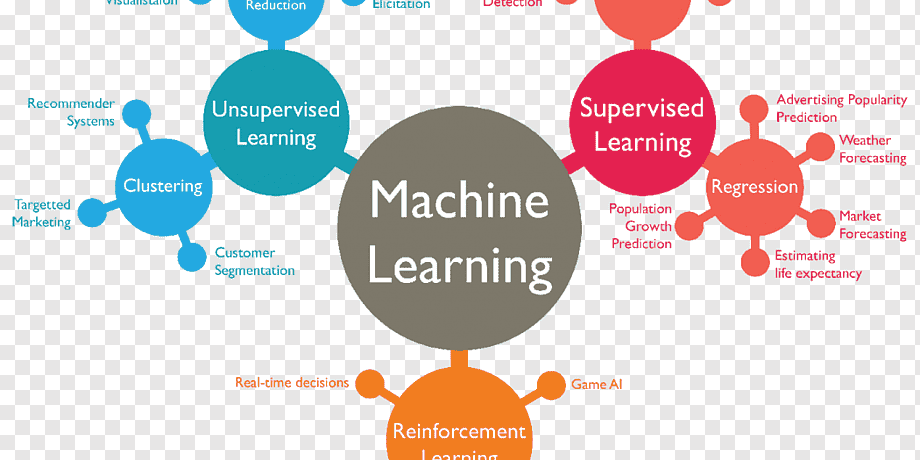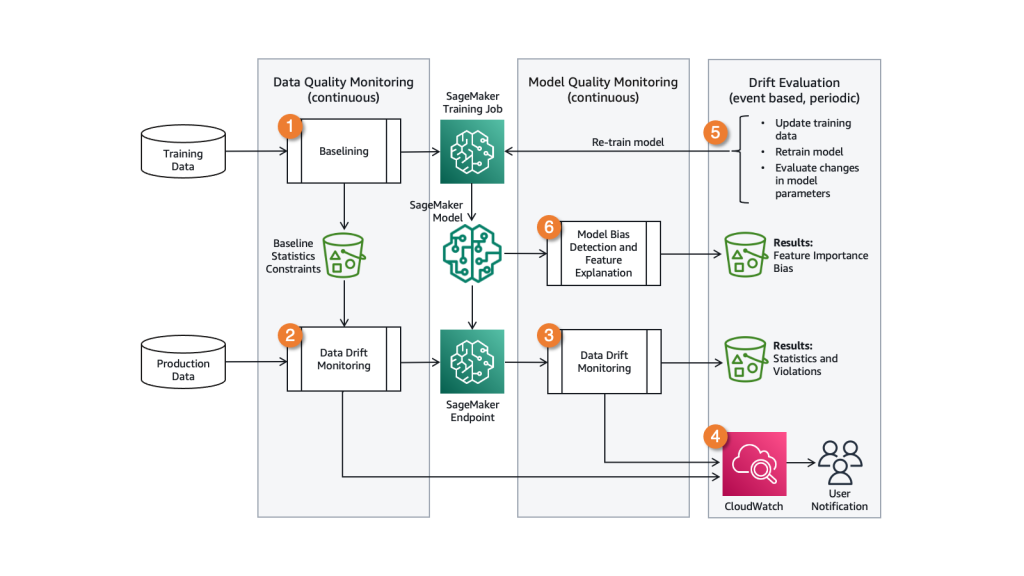Unraveling the Magic: what’s the power behind AI/ML and how to release it with AWS SageMaker

What is AI?
AI (Artificial Intelligence) refers to the field of computer science that focuses on creating intelligent machines capable of mimicking and performing tasks that typically require human intelligence. AI encompasses various subfields, such as machine learning, natural language processing, computer vision, and robotics.

What is ML?
ML (Machine Learning) is a subset of AI that involves the development of algorithms and models that enable computers to learn from and make predictions or decisions based on data. Instead of being explicitly programmed, machine learning systems are trained on data and use statistical techniques to identify patterns and make informed decisions or predictions.
How AI/ML Works Using AWS Services?
1. Data Collection and Storage:
The foundation of AI/ML lies in data. AWS offers various services like Amazon S3, Amazon RDS, or Amazon DynamoDB for collecting, storing, and managing vast amounts of data. These services ensure secure, scalable, and reliable storage of the data required for AI/ML projects.
2. Data Preprocessing and Cleaning:
Data preprocessing is a crucial step to ensure high-quality input for ML models. AWS services like AWS Glue and AWS Data Pipeline assist in transforming, cleaning, and normalizing the data. These services automate the data preparation process, making it more efficient and accurate.
3. Training ML Models:
The training phase involves building ML models by providing data and desired outcomes. AWS SageMaker is a powerful service that simplifies the ML model training process. It offers a collaborative development environment, built-in Jupyter notebooks, and support for popular ML frameworks like TensorFlow and PyTorch.
4. ML Model Deployment:
Once the ML model is trained, it needs to be deployed to make predictions or provide insights. AWS SageMaker makes model deployment easy with its managed hosting service. Users can deploy their models as endpoints, which automatically scale based on demand.
5. Model Monitoring and Optimization:
After deployment, monitoring the ML model’s performance is crucial to ensure its accuracy and effectiveness. AWS CloudWatch integrates with SageMaker to provide real-time monitoring and alerts for model performance, resource utilization, and potential issues. This allows businesses to optimize models, detect anomalies, and address any drift in model behavior.
6. Automated ML with AWS AutoML:
AWS offers AutoML services like Amazon Comprehend and Amazon Forecast, which simplify the process of ML model development and deployment. These services use pre-built ML models and automatically train and optimize them based on the specific use case. AutoML makes AI/ML accessible to a wider audience, even those without deep ML expertise.
7. Data Visualization and Insights:
AWS QuickSight is a powerful business intelligence service that enables businesses to derive insights from their data and visualize them through interactive dashboards. QuickSight integrates seamlessly with various AWS data sources and ML models, allowing users to explore patterns, trends, and correlations in the data.
8. Advanced AI Services:
AWS offers a range of advanced AI services that leverage deep learning and natural language processing (NLP). Services like Amazon Rekognition provide image and video analysis, while Amazon Comprehend offers NLP capabilities for sentiment analysis, language detection, and entity recognition. These services enable businesses to extract valuable information from unstructured data and enhance their applications.
How Sagemaker Revolutionized the AI/ML World?
In the rapidly evolving field of Artificial Intelligence (AI) and Machine Learning (ML), staying ahead of the curve requires powerful tools and platforms that streamline the development and deployment of models. One such game-changer is Amazon SageMaker. Developed by Amazon Web Services (AWS), SageMaker has emerged as a revolutionary cloud-based platform, empowering data scientists and developers to build, train, and deploy ML models with unparalleled ease and efficiency.

Here are some of the key impacts of SageMaker:
Simplified ML Workflow: SageMaker simplifies the end-to-end ML workflow by providing a unified environment for data preprocessing, model training, deployment, and inference. It offers a range of built-in algorithms and frameworks, as well as tools for data labeling and model tuning, making it easier for developers and data scientists to build and deploy ML models.
Scalability and Efficiency: With SageMaker, users can easily scale their ML workloads to handle large datasets and complex models. It automatically provisions the required compute resources and optimizes the training process, reducing the time and effort required to train models at scale.
Cost Savings: SageMaker offers cost-effective pricing models, such as pay-as-you-go and spot instances, allowing users to reduce ML infrastructure costs. It also provides features like automatic model scaling and resource optimization, further optimizing costs by using resources efficiently.
Built-in Tools and Frameworks: SageMaker includes a variety of pre-built ML algorithms, frameworks (such as TensorFlow and PyTorch), and optimization tools. These tools simplify the development process and enable users to quickly prototype and experiment with different models and techniques.
Easy Deployment and Management: SageMaker streamlines the deployment process by providing pre-built containers and managed hosting. It enables seamless integration with other AWS services, allowing users to easily deploy ML models as web services or integrate them into existing applications.
Collaboration and Reproducibility: SageMaker facilitates collaboration among teams by providing shared notebooks and version control integration. It allows multiple data scientists to work on the same project simultaneously, improving productivity and reproducibility.
Robust Infrastructure: SageMaker leverages the scalable infrastructure of AWS, ensuring high availability and reliability for ML workloads. It provides built-in monitoring and logging capabilities, enabling users to track model performance and troubleshoot issues effectively.
Advantages of AI/ML in Business:
1. Enhanced Efficiency and Automation:
AI/ML technologies have the potential to automate repetitive and mundane tasks, allowing businesses to optimize their operational efficiency. By automating processes like data analysis, customer support, and inventory management, companies can reduce costs, save time, and allocate resources more effectively.
2. Improved Decision Making:
AI/ML algorithms can process vast amounts of data and extract valuable insights. By analyzing patterns and trends, businesses can make data-driven decisions with greater accuracy and speed. This enables organizations to identify opportunities, predict market trends, and optimize their strategies for better outcomes.
3. Personalized Customer Experience:
AI-powered tools enable businesses to offer personalized experiences to their customers. By analyzing customer behavior, preferences, and purchasing history, companies can deliver targeted marketing campaigns, personalized product recommendations, and tailored customer support, resulting in increased customer satisfaction and loyalty.
4. Advanced Data Analytics:
AI/ML technologies can uncover hidden patterns and correlations within large datasets, providing valuable insights for businesses. These insights help identify customer preferences, market trends, and emerging risks, allowing organizations to gain a competitive edge. Data analytics powered by AI can also streamline decision-making processes and identify areas for improvement.
Disadvantages and Challenges of AI/ML in Business:
1. Lack of Human Touch:
One of the key challenges of AI/ML is the potential loss of the human touch in customer interactions. While AI-powered chatbots and virtual assistants can handle routine inquiries, they may struggle to replicate the empathy and understanding that comes from human interaction.
2. Data Privacy and Security Concerns:
AI/ML relies heavily on data, often involving sensitive customer information. This poses potential risks related to data breaches, privacy infringements, and misuse of personal data. Businesses must prioritize robust data protection measures and adhere to ethical practices to ensure the security and privacy of their customers’ information.
3. Initial Investment and Technical Challenges:
The initial costs can be high, especially for small and medium-sized enterprises (SMEs). Additionally, integrating AI/ML into existing systems and processes may pose technical challenges and require reengineering, causing disruption during the transition phase.
Why is AI Needed in Today’s World?
1. Increasing Complexity of Data:
As businesses generate and collect vast amounts of data, traditional methods of analysis and decision making are becoming inadequate. AI/ML technologies possess the ability to process and analyze complex datasets efficiently, providing valuable insights that humans may miss. This helps organizations make more informed decisions in real-time.
2. Competitive Advantage:
In today’s highly competitive marketplace, businesses need to stay ahead by offering innovative products, personalized services, and exceptional customer experiences. AI/ML enables companies to gain a competitive advantage by driving operational efficiency, improving customer satisfaction, and facilitating informed decision making.
3. Addressing Scalability and Resource Constraints:
AI/ML technologies can help businesses scale their operations by automating tasks, optimizing workflows, and reducing the reliance on human resources.
Conclusion:
AWS services have revolutionized the way AI/ML works, making it more accessible, scalable, and efficient for businesses. From data collection and preprocessing to model training, deployment, monitoring, and optimization, AWS provides a comprehensive ecosystem for AI/ML workflows. By leveraging these services, businesses can unlock the full potential of AI/ML, drive innovation, and gain a competitive advantage in the digital era.


